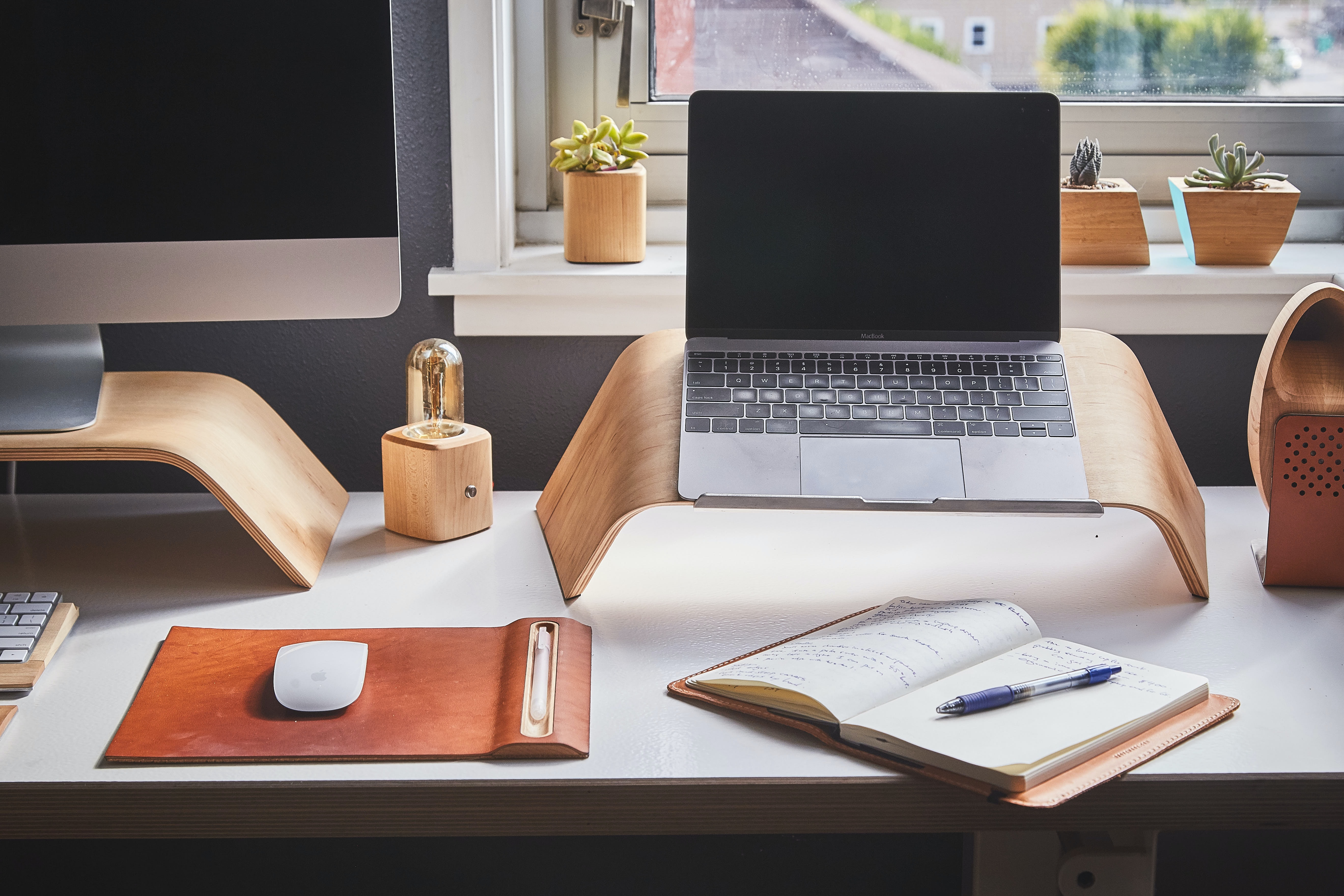
End of work in the home office: these 6 rituals help you switch off
Do you find it difficult to draw the line between work and private life in your home office? The following tips will help you to relax after work.
Fewer breaks, more overtime and many restless evenings: This is the result after a few months for many people who work from home or on the move. Since the German Trade Union Confederation (DGB) presented the results of a survey on working from home and mobile working in July 2022, we know that this is not a subjective feeling but reality. 28 percent of respondents said they often work unpaid overtime, 46 percent would shorten breaks or skip them altogether. 47 percent say they can no longer really switch off in their free time.
Back to a healthy after-work culture
If you are constantly available for your employer, it is difficult to clear your head after work, that is logical - and a burden on your health. Once you have become accustomed to this imbalance between work and leisure, it becomes increasingly difficult to break this unhealthy cycle. But you can help yourself: by anchoring a few specific rituals in your day. Because regularity creates a sense of security and stability in us, rituals are an effective tool for reclaiming the end of the day as a phase of relaxation.
In the following, you can find out which after-work rituals in the home office ensure that you can mentally put a tick behind the working day:
The first step towards a healthy after-work culture is to set working hours. Time flexibility in the home office quickly turns into a disadvantage if you work overtime day in, day out. What helps: Orientate yourself on your usual office hours from the past. You used to finish work at the office around 6 pm? Then you are no longer available at this time in your home office. If this doesn't work for you right away because the workload exceeds your weekly hours, write down the overtime hours and talk to your supervisor in a timely manner.
Plan breaks - and stick to them. A little reality check: Are there crumbs on the bottom of your computer keyboard? That could be a sign that you like to spend your break at your desk - but restful is not the way to go. Therefore: Plan your break and from now on keep it as reliably as the time at which you finish work. Leave your desk for a short break, maybe even arrange to meet up with colleagues. Establishing this ritual in your everyday life (again) is an expression of appreciation towards yourself.
Mentally closing doors: The clock says it's time to go home, but your head is still spinning? Sometimes it may not be enough to close your laptop or the door to the room where your desk is. What can help to draw the line between work and private life is to close the door mentally. This can mean writing an after-work text message to a friend every evening. As a joint ritual and as a sign that it's time to stop working. Or, similar to autogenic training, you can imagine in great detail how you leave the office and lock the door behind you. The more your brain gets used to this trick, the easier it will be for you to switch off promptly at the end of the day.
Discover meditation, fascia training & co: After the thought training described above, you are only one step away from a relaxation meditation. Breathing and stretching exercises, for example, can help you find peace. The decisive factor for stress reduction in the home office is not the duration of the exercise, but that you consciously take your thoughts away from everything that has to do with work. Choose an activity that you really enjoy, then it will be easier for you to establish this ritual.
Physical exercise: When we move, our body releases the happiness hormones dopamine, serotonin and endorphin. It makes sense that we take away worrying thoughts about to-do lists that are too long, doesn't it? Whether it's a jog, a game of badminton or a visit to the swimming pool, your favourite sport as an after-work ritual inevitably marks the end of your working day.
Make fixed appointments: The cinema film starts at 7 p.m., the table in the restaurant is reserved for 6.30 p.m.? A trick that almost always works is to have a fixed appointment with another person. First of all, such a meeting makes it easier for you to finish up at home. And secondly, even the busiest colleagues usually accept that the meeting must now come to an end or be continued the following day. Of course, such appointments are no good as a daily ritual, because at some point even the biggest socialiser will run out of steam. But this trick is certainly a weekly after-work ritual to forget the home office.
Sources:
Deutscher Gewerkschaftsbund (May 2022), "Arbeit der Zukunft im 'Neuen Normal' - Entgrenzung und Erholung bei digitaler und mobiler Arbeit", https://index-gute-arbeit.dgb.de/++co++cc6b2888-b0fa-11ec-ac1a-001a4a160123, last accessed 12.7.2022.
ZDF.de (4.7.2022), "Home office can lead to more stress", https://www.zdf.de/nachrichten/wirtschaft/homeoffice-job-stress-studie-100.html, last accessed 12.7.2022

About the authors
The editorial team of REDEZEIT FÜR DICH is a team of mental health experts, professional coaches and dedicated writers who are committed to sharing knowledge and insights around the topic of mental wellbeing. With a deep understanding of the challenges of modern life and a wealth of experience in supporting people in crisis, the editorial team provides content that informs, inspires and shows ways to personal fulfilment.
In the articles by the REDEZEIT FÜR DICH editorial team, readers will find a carefully curated mix of practical advice, in-depth reflections and motivating stories. Each article is written with the aim of encouraging readers to prioritise their mental health, strengthen their resilience and build a supportive network.
The REDEZEIT FÜR DICH editorial team is always open to suggestions, feedback or personal stories that you would like to share with us. We are here to support, share and pave the way to a mentally healthy community together.
